The foreign ministry of the Sudanese military junta has spoken out against a humanitarian conference being hosted by western nations in Paris, France, on April 15th. The date of the conference marks the one year anniversary of the war in Sudan.
Humanitarian Efforts
On April 15th, France is hosting a humanitarian conference in Paris, meant to drum up funding in order to support humanitarian initiatives in Sudan. The conference is to be attended by a number of different western entities, including the US, the EU, the UK, and more, as well as a number of different Sudanese civilian groups and NGO’s.
The primary purpose is to attempt to garner funding for Sudan’s humanitarian aid programs that go extremely underfunded. The UN is requesting an additional 4.1 billion USD in order to address Sudan’s humanitarian needs. The US’ Special Envoy to Sudan, Tom Perriello, has stated that they are “only at 5% of the needed amount,” after stating that “the international response has been pitiful.”
Sudan’s Condemnations
Missing from the conference, however, are representatives of Sudan’s military government, something they have been very critical of.
The Sudanese Ministry of Foreign Affairs released a statement in which it expressed “its utmost astonishment and condemnation” of the conference, condemning “that such a conference is convened on a matter concerning Sudan without consultation or coordination with its government and without its participation.”
They called upon the international community to “fulfil previous pledges instead of wasting resources and efforts in holding new conferences,” further claiming that these conferences “will be nothing more than political and propaganda festivals.”
Sudan’s ambassador to France, Khaled Farah, expressed similar sentiments, claiming that the conference will only serve to prop up the opposing Rapid Support Forces (RSF), the paramilitary group that the Sudanese military government has been at war with for almost a year.
The ambassador claimed the RSF would be “implicitly present and strongly participating in this conference, through political allies and sympathizers… such as the so-called Democratic and Civil Forces (Taqaddum) … and other non-governmental organizations, civil society groups, and representatives of some political organizations and individuals,” and that the conference would assist the RSF “under the pretext of concern for the tragedy of the Sudanese people.”
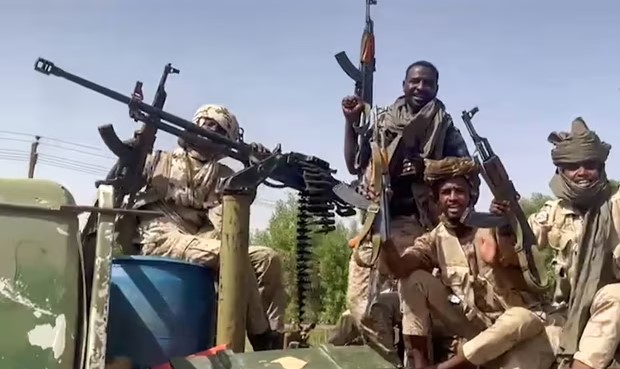
Sudan has oftentimes condemned any sort of peace process that it is not involved in. Notably, Taqaddum, the Sudanese civilian group that the ambassador mentioned by name, has previously attempted to organize a ceasefire between the Sudanese Armed Forces (SAF) and the RSF. The ceasefire proposed by Taqaddum was accepted in principle by the RSF, but denied by the SAF, who refused to participate in negotiations.
The RSF, like the SAF, is not to have any presence at the Paris conference.
“Successfully Restored”
As the Paris conference is approaching, and more and more nations push for an end to the war, Sudan has announced progress in restoring its militaristic capabilities.
SAF leader, General Abdel Fattah al-Burhan, announced on April 12th that the Sudanese government has “successfully restored” a number of different sectors in its military.
“The armed forces have successfully restored a major portion of our defence capabilities. The battle will soon be resolved in the people’s favour” -Sudanese military junta leader General Abdel Fattah al-Burhan
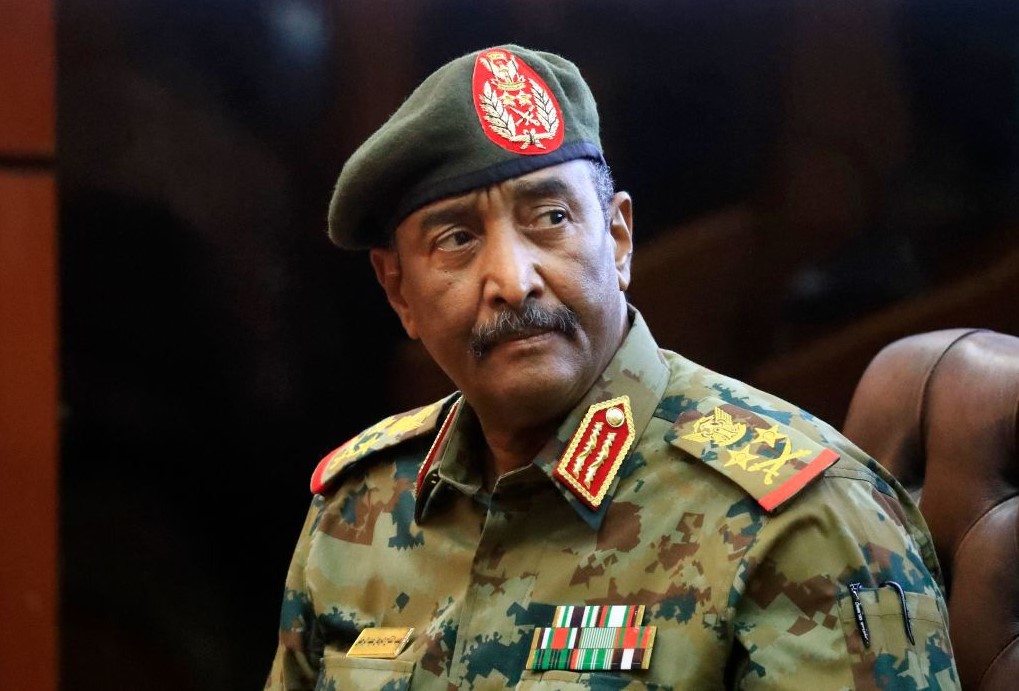
General al-Burhan iterated a threat to “neutralize and suppress the insurgency.”
“The mobile combat units established by the leadership are well-equipped to neutralize and suppress the insurgency. The army, backed by the people, will not be vanquished. To those who dream of disbanding the armed forces, we say: this is an impossible dream” -Sudanese military junta leader General Abdel Fattah al-Burhan
General al-Burhan attributed the Sudanese people’s “patience and strong will” as the reason that the SAF has made several gains in recent weeks. The SAF’s gains in recent weeks followed repeated and significant gains by the RSF earlier this year. Most notedly, the SAF had made gains in Khartoum, the Sudanese capital. However, Khartoum is still hotly contested, and split between the two sides.
Barriers to Peace
The primary purpose of the Paris conference is to garner support for humanitarian initiatives, not to bring about any sort of ceasefire.
Close to the end of March, the US’ Special Envoy to Sudan, Tom Perriello, announced that the US was hoping to resume peace talks, aimed at ending the war in Sudan, “as soon as Ramadan is over.” No date was set for the talks at the time of the envoy’s announcement.
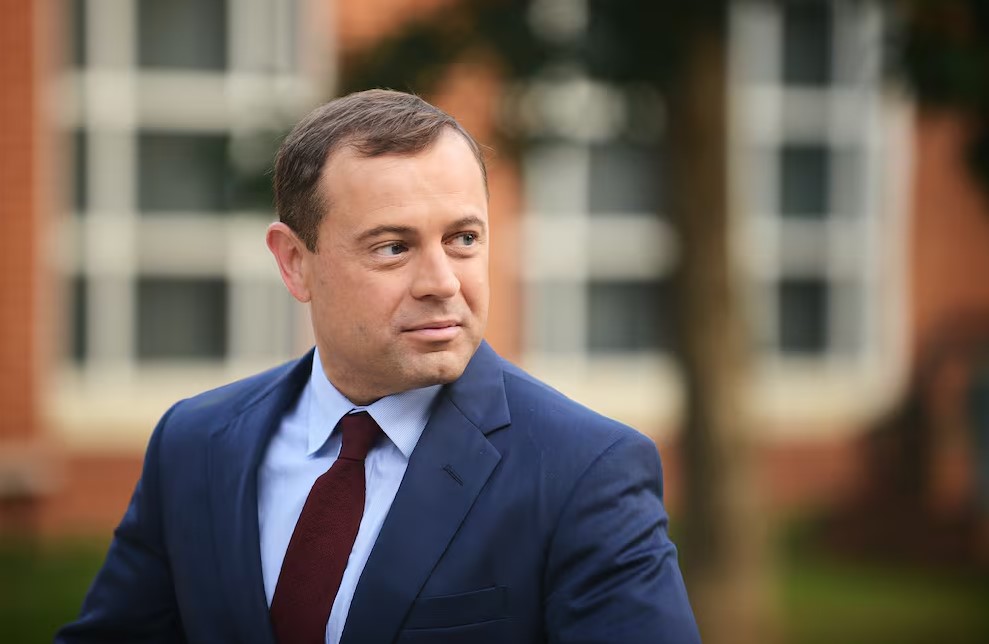
Following the initial announcement, Perriello announced that the US was looking to begin the talks on April 18th. However, Perriello has now stated that the talks were “unlikely” to resume on the 18th, without offering any alternative dates for when they may begin. Perriello did not say the reason for why the date may have changed.
Perriello added that the US was not waiting for formal talks to begin, stating that negotiations between the US and warring parties were taking place every day. He further stated that Saudi Arabia, the nation that will be hosting the eventual talks, was committed to the talks.
“We would love frankly for the talks to have started last week. But what we know is the Saudis are committed to the talks, to talks that include a broader set of the key actors, and we are hoping that they will commit to a date” -US Special Envoy to Sudan, Tom Perriello
Amidst al-Burhan’s statement that the military had been rebuilding itself, was his claim that Sudan’s government was open to dialogue. However, he reiterated a number of preconditions that must be met in order for the government to participate in any such talks. Namely, he called for the withdrawal of the RSF from a number of different urban areas.
“Negotiations cannot proceed as long as hostilities continue and civilian areas in El Geneina, Nyala, Zalingei, Khartoum, El Daein, and the Al Jazirah cities remain occupied. If the rebels are serious about dialogue, they must first withdraw their forces from urban centres and relocate them to designated zones” -Sudanese military junta leader General Abdel Fattah al-Burhan
Several different international entities are attempting to bring about peace negotiations for the end of the war. Recently Sudan established another precondition for participating in negotiations and processes established by the African Union (AU), with Sudan hinging their participation in such negotiations on their reinstatement as a full member of the AU.
The Intergovernmental Authority on Development (IGAD, an east African trade bloc of which Sudan is a member) also recently in January attempted to facilitate peace talks between the SAF and the RSF. In response to IGAD inviting the RSF to the talks, Sudan suspended cooperation with IGAD, referring to the very action as a violation of their sovereignty.
Earlier in the war, the US and Saudi Arabia managed to facilitate several peace talks in Jeddah, Saudi Arabia. The peace talks established a number of different ceasefires and humanitarian pauses, all of which were violated, sometimes in a matter of hours.
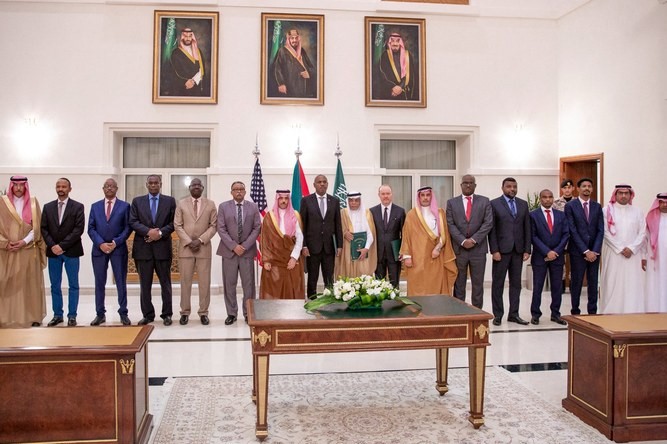
The talks the US is seeking to re-establish would be a resumption of the Jeddah talks. There remains no set date for when these talks will resume. Not very many details are known about the talks; however the US has said they will be “inclusive.” Future talks will reportedly involve the AU, IGAD, the US, Saudi Arabia, Egypt, and the UAE.
Notably, the UAE has been accused of supplying the RSF, which they deny. Additionally, Egypt has aligned itself with the SAF, and supplied them over the course of the war. The inclusion of the UAE and Egypt in the talks is likely due to their essential direct involvement in the war.
Peace efforts have been complicated by a lack of cooperation on both sides. The SAF in particular has denied multiple different peace initiatives throughout the course of the war. Many believe this to be due to the fact that the SAF has found itself in a less advantageous position as the war has gone on, losing several significant territories to the RSF, who has gained a level of international legitimacy, legitimacy that the SAF is keen to deny them. However, the RSF is also guilty of rejecting peace processes, denying several attempts.
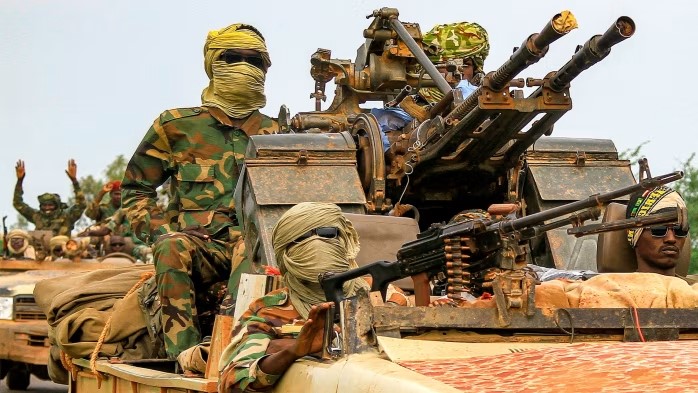
Both the RSF and the SAF recently rejected a UN Security Council resolution in early March that called for a ceasefire for the Islamic holy month of Ramadan.
The War in Sudan: One Year On
Sudan’s war is rapidly approaching the one year mark, having begun on April 15th, 2023. The war has seen significant portions of Sudan’s infrastructure damaged or destroyed, millions displaced, thousands killed, reports of rampant ethnic-based violence, and Sudan’s economy tank further than it already had been. The situation is worsened by the fact that Sudan had endured several years of civil conflict prior to the war’s beginning.
The war began between the SAF and the RSF due to disagreements on if/how the RSF should be integrated into the military, and power sharing agreements amidst the long process of transitioning into a civilian government.
Since the war’s beginning, Sudan has grown into the world’s largest internal displacement crisis. Approximately 8.5 million people are internally displaced within Sudan, the majority of whom (above six million) were displaced since the war began in April, with the remainder having been displaced in previous civil conflicts.
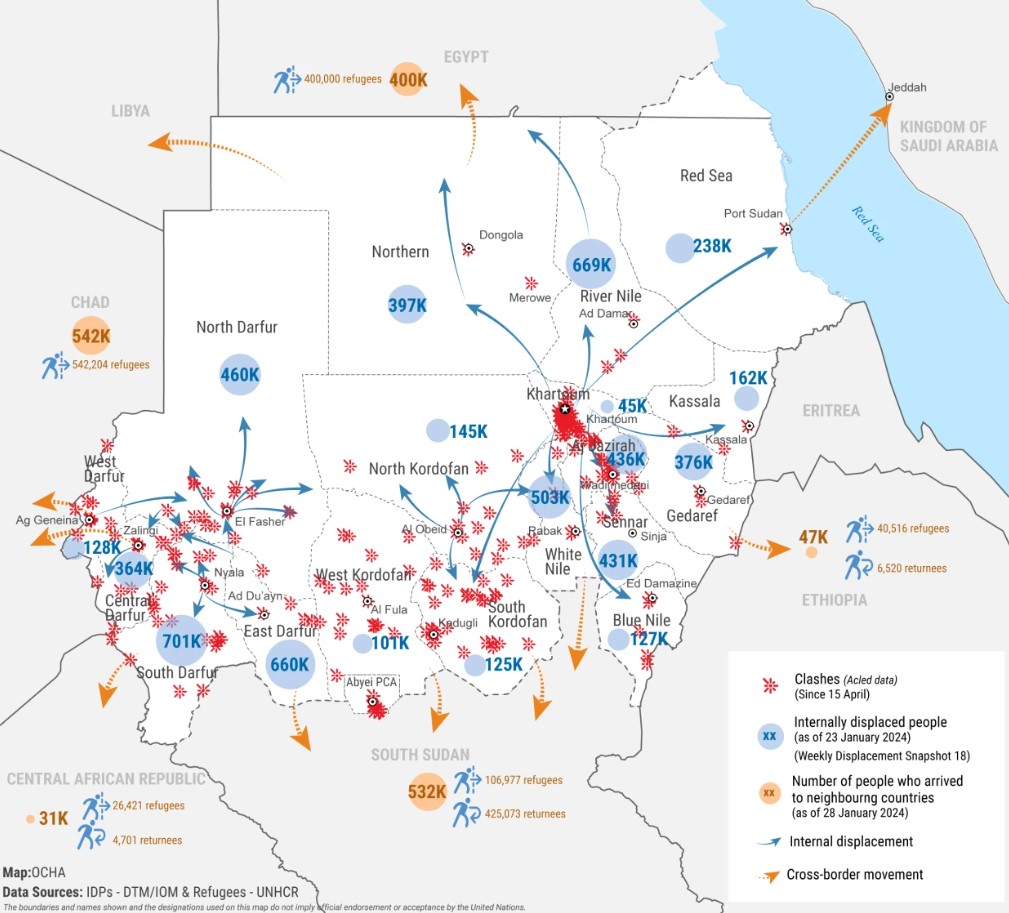
The 8.5 million are joined by nearly two million additional people that have fled Sudan completely, becoming refugees in neighbouring countries. This brings the total of displaced Sudanese civilians to approximately 10.5 million.
The war has also spawned with it an extensive humanitarian crisis. Prior to the war, significant portions of Sudan’s population were reliant upon humanitarian aid. Since the war began, this problem has only worsened, with approximately 18 million people within Sudan being food insecure. If Sudan, Chad, and South Sudan are grouped together, 25 million people are experiencing varying levels of food insecurity, representing a massive need for humanitarian aid.
Of Sudan’s 18 million, five million are experiencing emergency levels of hunger. The WFP has additionally stated that approximately 90% of those experiencing emergency levels of hunger are in areas that are simply inaccessible to the World Food Programme (WFP), meaning they are going entirely without aid.
Due to the lack of humanitarian aid that is entering Sudan, the WFP recently warned that the hunger crisis the nation is experiencing is threatening to become the world’s largest. If it does, this would not be the first time Sudan has held this title, as the hunger crisis experienced in Darfur, western Sudan, was the largest in the world 20 years ago.
In addition to a lack of proper funding and the heavy fighting throughout the nation, the WFP has additionally stated that “insecurity, restrictions, threats, roadblocks, and bureaucratic impediments” further harm humanitarian aid efforts.
Over the course of the war, at least 13,000 people (as of January 2024) have been killed. Casualty numbers are likely heavily underreported.
The war has been very costly in civilian casualties, with both sides attacks oftentimes leading to collateral deaths in civilian populations, particularly in and around Khartoum.
The UN has attributed ethnic violence to both sides, in particular to the RSF, who has reportedly carried out a number of massacres against civilian populations in Darfur. Darfur has a history of ethnic violence, and many of its populations have been targeted in Sudan’s previous conflicts as well.
The US and the EU have implemented sanctions on a number of different Sudanese companies that are involved in the war in differing capacities.
While the war began between the RSF and the SAF, a number of different militias throughout Sudan have joined the fight on both sides. Most recently, the Joint Force of Armed Movements in Sudan, or the Joint Force, in northern Darfur announced the end to their neutrality in the war, and their allegiance to the SAF. The Joint Force is a grouping of several different Sudanese militias.
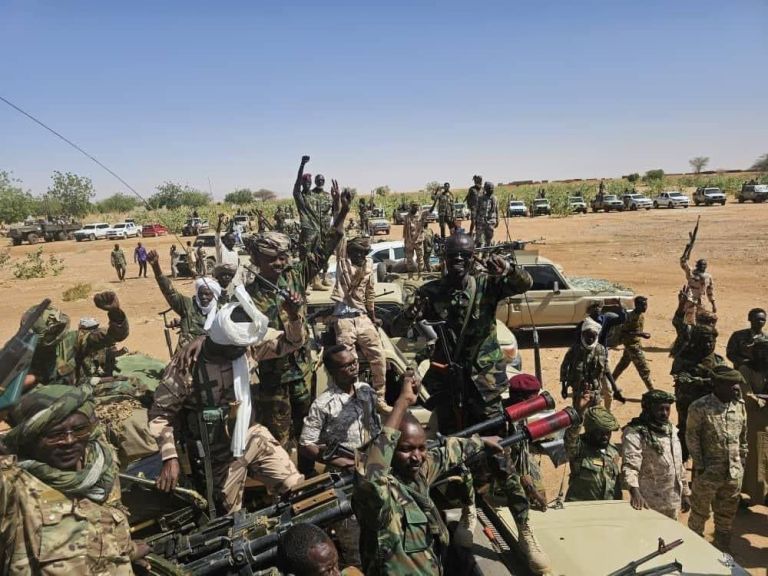
The Joint Force has vowed to defend El Fasher, the regional capital of North Darfur, as well as to actively defend humanitarian aid deliveries, attacking anyone who might try to obstruct them.
The entry of the Joint Force came after they claimed to have suffered attacks on their positions by the RSF, as well as the RSF had stated they may potentially block aid shipments to El Fasher on routes that they control.
The Joint Force is just one of many militias that have joined the war, as many fear the war could continue to expand and involve regional forces.


